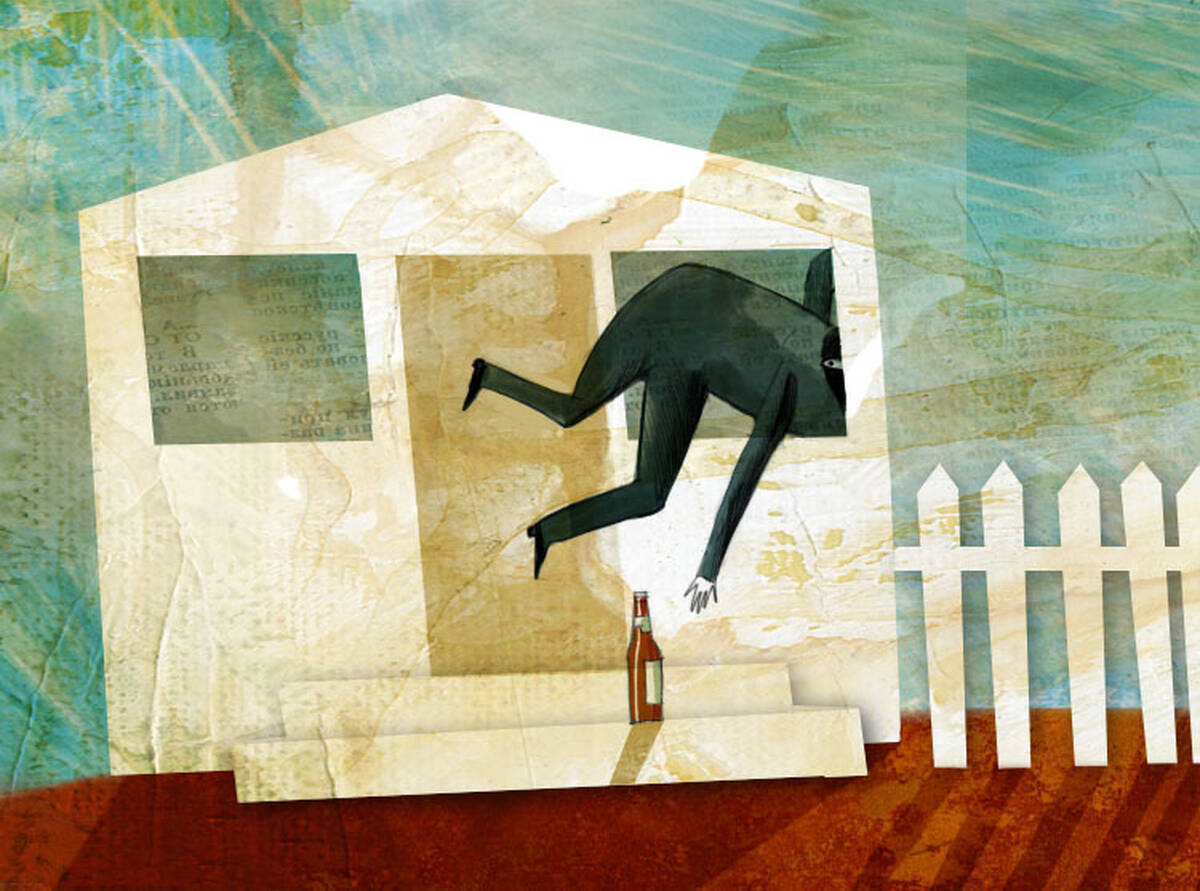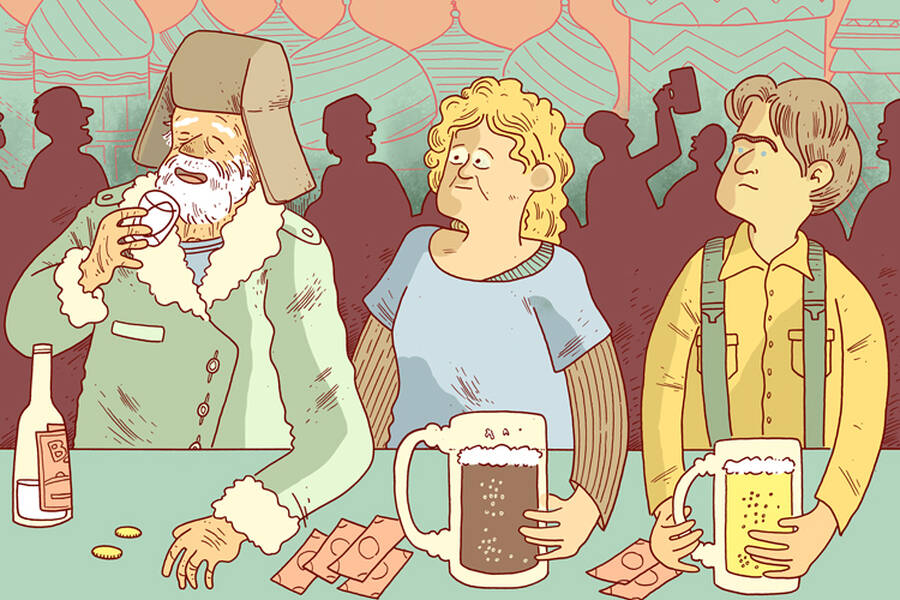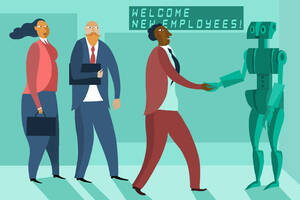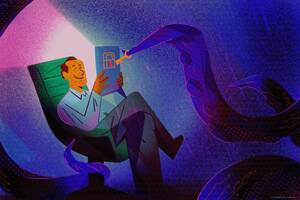
Yevgenia Nayberg
After Olympian Ryan Lochte was forced to pay damages for drunkenly vandalizing a gas-station bathroom, he embellished the incident, claiming he was robbed at gunpoint. Plenty of fans were horrified by the swimmer’s actions in Rio. But others excused his behavior at least a little bit, since, after all, he was really drunk.
Fall into the latter camp? If so, the Kellogg School’s Kelly Goldsmith is not surprised.
In general “people are so, so willing to discount people’s behavior if they’re drunk,” says Goldsmith, an assistant professor of marketing.
New research by Goldsmith, along with her colleagues Kellogg School PhD student Chelsea Galoni and UCLA’s Hal Hershfield, finds that people are more likely to forgive bad behavior when it is committed by someone who has consumed alcohol. And while such forgiveness may seem harmless enough, its social implications are actually quite profound—even affecting how federal prisoners are sentenced for violent crimes or to what extent corporations are held accountable for the bad behavior of inebriated employees
Our willingness to excuse inebriated crimes may come down to a more general reluctance “to accept that bad people do bad things,” says Goldsmith. “I think it is a self-protective mechanism in a way.”
Who You Are, or What’s Around You?
The topic has fascinated Goldsmith for some time. Her initial curiosity grew out of a broader trend she noticed in which “in a lot of contexts, consumers really seem to believe that their behavior doesn’t say anything about them,” she says.
While researchers like herself tend to see people’s choices as a reflection of their identities or goals, consumers in general are very quick to attribute behavior—both their own and others’—to circumstances instead. This is particularly true when those circumstances are in some way non-routine.
For example, as Goldsmith has found in other studies, if a consumer is told about a hypothetical shopper named Laura who spends beyond her budget, the consumer is less likely to judge Laura as having a spending problem if told that Laura is shopping in a brand-new mall as opposed to her usual mall.
“This is a really kooky, bizarre pattern of results,” Goldsmith says. Why decide that the circumstance of a brand-new mall is responsible for Laura’s behavior? Why not just decide that Laura is an overspender instead?
A Get-Out-Of-Jail-Free Card?
When Goldsmith decided to apply this line of questioning to alcohol and deviant behavior, things got even more bizarre.
She and her coauthors analyzed survey data from 1,591 federal prisoners, drawn from a large-scale governmental survey of inmates in state and federal correctional facilities. They looked at the severity of the criminals’ sentences as well as whether those criminals had consumed alcohol when committing the crimes for which they’d been sentenced. (The researchers opted to examine federal crimes because alcohol consumption isn’t legally supposed to factor into the sentencing of these crimes.)
“Fundamentally, you just don’t want to punish yourself.”
They found that prisoners who had been under the influence of alcohol received a significant reduction in sentence length for violent crimes—particularly for the most violent crimes, such as assault, kidnapping, murder, and rape.
“Maybe this is not news to lawyers,” Goldsmith says of the results. “But the rest of us are a little bit surprised. To think: if only you’re drunk when you commit a really violent crime, you have fewer years to spend in jail?”
However, for nonviolent crimes—including drug crimes, financial crimes, and property crimes—alcohol consumption had no significant effect on a prisoner’s sentence.
Why the difference? Goldsmith has no way to know for sure. But she suspects it may come down to the reality that crimes like theft or tax evasion are less likely to disturb our sense that the world is full of good people.
Judging Others
Valuable as the researchers found the real-world criminal data, it did not allow them to determine whether the prisoners were actually intoxicated at the time the crime occurred, or had simply consumed some amount of alcohol. This makes it difficult to discern the precise role that drunkenness may have played in their sentencing. So the researchers turned to controlled laboratory experiments.
Goldsmith and her coauthors recruited 194 participants online and had them read about a fictional character, “Rob,” who was attending his company’s annual holiday reception.
Half of the study participants read that no alcohol was served. The other half read: “There are ample opportunities to drink. Throughout the night, every time Rob’s glass is empty, someone comes by to refill it. By the end of the night, Rob is incredibly intoxicated.” All participants then read that although Rob was trying to save money, he agreed to his coworkers’ suggestion to join a poker game, during which he lost more than $1,200.
The participants were then asked to indicate their agreement or disagreement with statements such as “Rob’s actions say a lot about who he is as a person” and “Based on this story, I would assume Rob has a gambling problem.”
When Rob was described as drunk, participants were less likely to conclude that he had a gambling problem or that his actions said much about him as a person.
In other studies currently being revised for publication, Goldsmith manipulated how much agency Rob appeared to have while drinking. In one scenario, he heads up to the bar for each drink; in another he brings his own flask. But the manipulations made little difference, says Goldsmith.
“We’re so hardwired to not see people as bad people. Nobody sees, ‘Oh Rob refilled his drink, or brought his own flask.’”
Judging Ourselves
But what if participants were asked to judge themselves and their own behavior, rather than someone else’s?
To find out, the coauthors ran a follow-up experiment, in which 97 participants recruited online read a vignette that asked them to imagine themselves committing a deviant behavior similar to Rob’s when they were either drunk or sober.
Interestingly, imagining being intoxicated versus sober did not affect what participants believed their actions said about themselves. But still, the participants who imagined themselves drunk judged their own behavior less harshly than the participants who imagined themselves sober.
“Fundamentally, you just don’t want to punish yourself,” Goldsmith explains.
Intoxication and the Workplace
Goldsmith’s findings have implications for organizations, which are often held accountable for the behavior of their employees.
“We’ve run a lot of studies in which we looked at how the indiscretions of a firm are perceived if the person who did the behavior was intoxicated,” she says. “We found that people were more forgiving of firms if the representative was intoxicated.”
Moreover, “drunkenness is but one discounting cue of many,” says Goldsmith. “If people think the person—or the brand—is operating in uncharted waters, they’re much more forgiving.” This suggests that companies might want to at least consider revealing any extenuating circumstances that may have contributed to poor performance or dubious decision-making.
One potential area for future study: Why—in our haste to hand out passes for deviant behavior carried out while under the influence of alcohol—don’t we seem to consider the fact that people almost always choose to drink of their own free will?
“If you had a good answer for that, I would love to test it,” Goldsmith says. “How can we shift people’s perception to the fact that this person chose to get drunk? How do we make that connection?”
And why does she want that connection to be made? Because “fundamentally, our society has set up an environment that perpetuates this relationship between alcohol and deviant behavior,” says Goldsmith. “And I think that’s a problem. I don’t think people want a universe where criminals know that if they’re drunk when they do something, they’re going to get punished less harshly.



